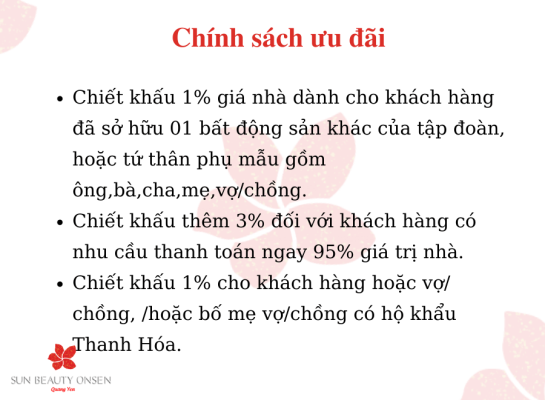- Beyond the Barnyard: Exploring the Thrills, Risks, and Legitimacy of chicken road with a £20,000 Win Potential.
- Understanding the Core Gameplay of Chicken Road
- The Four Difficulty Levels: A Risk-Reward Analysis
- Strategic Considerations for Each Level
- Betting Ranges and Maximum Payouts
- Analyzing the Random Number Generator (RNG) and Fairness
- Understanding RTP and House Edge
- Strategies for Playing Chicken Road: Maximizing Your Chances
- The Importance of Bankroll Management
- Conclusion: Legitimate Thrills with a Disclaimer
Beyond the Barnyard: Exploring the Thrills, Risks, and Legitimacy of chicken road with a £20,000 Win Potential.
The world of online casino games is constantly evolving, with new and innovative titles emerging regularly. One such game that has recently gained considerable attention is chicken road. But is chicken road legit? This crash game, offering a potentially high payout of up to £20,000, presents a unique blend of simplicity and excitement. This article delves into the mechanics, risks, and rewards associated with chicken road, exploring its features and assessing its overall legitimacy for players seeking a thrilling gambling experience.
Understanding the Core Gameplay of Chicken Road
Chicken Road is a crash game, a genre known for its fast-paced action and potential for quick wins (and losses). The core premise revolves around a chicken character traversing a series of lines on the screen. As the chicken progresses, a multiplier increases with each step. Players place bets before each round and can cash out at any moment, securing their winnings based on the current multiplier. However, the game ends abruptly if the chicken crashes, resulting in the loss of the entire stake.
The simplicity of this mechanic is part of the game’s appeal, making it accessible to both novice and experienced players. The tension builds with each step the chicken takes, creating a genuinely exciting and potentially rewarding experience. The dynamic nature of the multiplier means that returns can be substantial, making Chicken Road a popular option for those seeking high-risk, high-reward gameplay.
| Easy | 25 | 1/25 |
| Medium | 22 | 3/25 |
| Hard | 20 | 5/25 |
| Hardcore | 15 | 10/25 |
The Four Difficulty Levels: A Risk-Reward Analysis
Chicken Road caters to various risk appetites with its four distinct difficulty levels: Easy, Medium, Hard, and Hardcore. Each level alters the number of lines the chicken traverses, directly impacting the probability of a crash and, consequently, the potential payout. The Easy mode, with 25 lines, provides the lowest risk, offering a more prolonged game duration and a smaller multiplier. Conversely, Hardcore mode, with only 15 lines, presents the highest risk but boasts the most significant potential rewards.
Understanding these levels is crucial for tailoring the gameplay to your personal tolerance for risk. Conservative players may prefer the relative safety of Easy mode, while those seeking substantial gains might gravitate towards the higher-risk Hardcore option. The RTP (Return to Player) of 98% remains constant across all levels, providing a reasonable baseline expectation of returns over the long term.
Strategic Considerations for Each Level
Choosing the right difficulty level is not purely about risk tolerance. It’s also about understanding the dynamics of each mode and employing appropriate strategies. In Easy mode, a more patient approach and later cash-outs can be rewarding. Medium mode requires a balance of patience and quick reflexes. Hard mode demands sharper timing, while Hardcore forces players to make split-second decisions with potentially massive consequences.
Furthermore, bankroll management is vital in Chicken Road. Players should carefully consider their stake size in relation to the difficulty level and their personal financial comfort. Never bet more than you can afford to lose and always prioritize responsible gambling.
Betting Ranges and Maximum Payouts
The betting ranges in Chicken Road are inclusive, catering to players with diverse budgets. Bets can range from as little as £0.01 to a maximum of £200 per round. This flexibility makes the game accessible to casual players and high rollers alike. However, it’s essential to remember that higher stakes involve greater risk, and a well-defined betting strategy is always recommended.
The game’s maximum payout is capped at £20,000. This impressive figure is achievable on the Hard and Hardcore difficulty levels, specifically when reaching a multiplier of x100. While these higher payouts are less frequent, the potential for such a substantial win adds to the game’s overall appeal.
Analyzing the Random Number Generator (RNG) and Fairness
A key aspect in determining is chicken road legit lies in understanding the game’s fairness and the integrity of its Random Number Generator (RNG). Reputable online casinos utilize certified RNGs to ensure that each game outcome is entirely random and unbiased. These RNGs are independently audited by third-party testing agencies to verify their fairness and adherence to industry standards.
Before participating in Chicken Road, players should always verify that the casino they are using is licensed and regulated by a recognized authority. Licensing ensures that the casino operates legally and is subject to strict oversight, providing players with a degree of protection. Inspecting the casino’s terms and conditions regarding withdrawals and fairness is also crucial.
- Look for licensing from reputable authorities (e.g., UK Gambling Commission, Malta Gaming Authority).
- Check for independent RNG certification.
- Read player reviews and feedback regarding fairness and payout reliability.
- Understand the casino’s withdrawal policies and timelines.
Understanding RTP and House Edge
The Return to Player (RTP) percentage represents the theoretical amount a game pays back to players over an extended period. Chicken Road boasts an RTP of 98%, which is considered relatively high compared to many other casino games. This indicates a favorable payout ratio, giving players a decent chance of winning over time.
The house edge is the opposite of RTP and represents the casino’s average profit margin. A higher RTP equates to a lower house edge, which means players retain a greater percentage of their wagers. While RTP doesn’t guarantee individual wins, it provides a valuable insight into the game’s long-term profitability.
Strategies for Playing Chicken Road: Maximizing Your Chances
While Chicken Road relies heavily on luck, adopting strategic approaches can potentially enhance your winning opportunities. One popular strategy is the ‘early cash-out’ method, where players secure small but consistent profits by cashing out at relatively low multipliers (e.g., 1.1x-1.5x). This approach minimizes risk but may result in lower overall returns.
Alternatively, the ‘high-risk, high-reward’ strategy involves waiting for higher multipliers before cashing out. This strategy offers the potential for significant payouts but carries a substantial risk of losing the entire stake. A more nuanced approach involves adjusting your strategy based on the difficulty level and observing the game’s patterns.
- Start with smaller bets to get acquainted with the game mechanics.
- Choose a difficulty level that aligns with your risk tolerance.
- Set a win/loss limit and stick to it.
- Consider using the auto-cashout feature to secure profits at a predetermined multiplier.
- Practice responsible gambling; never chase losses.
The Importance of Bankroll Management
Effective bankroll management is paramount in any casino game, and Chicken Road is no exception. Before commencing play, it’s crucial to establish a budget and adhere to it strictly. A general rule of thumb is to allocate only a small percentage of your total bankroll to each session. Avoid betting amounts that could significantly deplete your funds in a single round.
Utilizing a system of progressive or conservative betting can also aid in bankroll preservation. Progressive betting involves increasing your stake after each win, while conservative betting involves reducing your stake after each loss. Both strategies can help mitigate risk and extend your playing time.
Conclusion: Legitimate Thrills with a Disclaimer
Ultimately, the question of is chicken road legit is largely answered by the credentials of the casino hosting the game. If the casino is licensed, regulated, and employs certified RNGs, then Chicken Road can be considered a legitimate and provably fair game. However, players must approach this game with caution, acknowledging the inherent risks involved in crash games. The volatility, combined with the potential for significant losses, means it’s not a game for the faint of heart; and remember to play in accordance with the website rules.



























